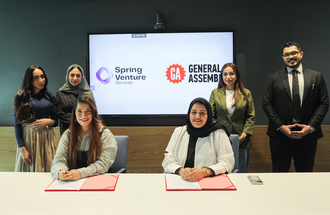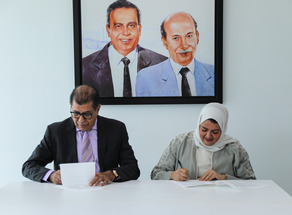-
Doctors call for shorter gap between Pfizer Covid vaccine doses in UK

British Medical Council warns current 12-week wait could reduce effectiveness of the jab
The gap between the first and second dose of the Pfizer/BioNTech coronavirus vaccine must be reduced to ensure the vaccine is effective, senior doctors have warned.
Currently patients wait about three months to get their second dose. Prof Chris Whitty, the chief medical officer for England, said this was a “public health decision” to get the first jab to more people across the country.
However, Dr Chaand Nagpaul, chair of the council of the British Medical Association (BMA), said the gap could reduce the effectiveness of the vaccine. He said that while he understood the rationale behind the decision to delay the second dose, the UK should follow “best practice” and reduce the wait time to six weeks.While there is some evidence from trials of the Oxford/AstraZeneca vaccine that a late second dose up to 12 weeks does not interfere with the efficacy of the vaccine, Pfizer has said there is no evidence from its trials.
Nagpaul pointed to analysis from the World Health Organization that said second doses of the Pfizer vaccine should only be delayed “in exceptional circumstances” and recommended a gap of four weeks between doses.
“Most nations in the world are facing challenges similar to the UK in having limited vaccine supply and also wanting to protect their population maximally. No other nation has adopted the UK’s approach,” Nagpaul told BBC Breakfast on Saturday.
“Obviously the protection will not vanish after six weeks but what we do not know is what level of protection will be offered … we should not be extrapolating data where we don’t have it. I do understand the trade-off and the rationale but if that was the right thing to do then we would see other nations following suit.
“The concern we have … if the vaccine’s efficacy is reduced … then of course the risk is that we will see those who are exposed maximally to the virus may get infected,” he added. “The other worry is that members of the population, those who are at highest risk, may not be protected.”
According to the government’s Joint Committee on Vaccination and Immunisation, unpublished data suggests the Oxford/AstraZeneca vaccine is still effective when the doses are administered 12 weeks apart. However, Pfizer said it had only tested the vaccine’s efficacy when the two doses were given up to 21 days apart.
The BMA has written privately to Whitty to express its concern over the gap between doses. The letter, seen by the BBC, said the policy was “difficult to justify”.
“The absence of any international support for the UK’s approach is a cause of deep concern and risks undermining public and the profession’s trust in the vaccination programme,” it said.
The letter also expressed concern that one dose of the Pfizer vaccine “does not produce sufficient neutralising antibodies and the potential to reduce transmission”.
The Public Health England medical director, Prof Yvonne Doyle, defended the decision to delay the vaccine, saying it was based on “public health and scientific advice”.
“The more people that are protected against this virus, the less opportunity it has to get the upper hand. Protecting more people is the right thing to do,” she told BBC Radio 4’s Today programme.
“People will get their second dose. As supplies become available more people will be vaccinated. It is a reasonable scientific balance on the basis of both supply and also protecting the most people.”
The NHS originally planned to offer second shots of the Pfizer vaccine three weeks after the first, in line with the procedure in the trials, but the soaring infection rate forced a rethink in late December with the JCVI recommending first shots for as many people as possible in the highest-risk groups.
“This is highly likely to have a greater public health impact in the short term and reduce the number of preventable deaths from Covid-19,” a JCVI statement said.
source: Molly Blackall
Levant
You May Also Like
Popular Posts
Caricature
BENEFIT Sponsors BuildHer...
- April 23, 2025
BENEFIT, the Kingdom’s innovator and leading company in Fintech and electronic financial transactions service, has sponsored the BuildHer CityHack 2025 Hackathon, a two-day event spearheaded by the College of Engineering and Technology at the Royal University for Women (RUW).
Aimed at secondary school students, the event brought together a distinguished group of academic professionals and technology experts to mentor and inspire young participants.
More than 100 high school students from across the Kingdom of Bahrain took part in the hackathon, which featured an intensive programme of training workshops and hands-on sessions. These activities were tailored to enhance participants’ critical thinking, collaborative problem-solving, and team-building capabilities, while also encouraging the development of practical and sustainable solutions to contemporary challenges using modern technological tools.
BENEFIT’s Chief Executive Mr. Abdulwahed AlJanahi, commented: “Our support for this educational hackathon reflects our long-term strategic vision to nurture the talents of emerging national youth and empower the next generation of accomplished female leaders in technology. By fostering creativity and innovation, we aim to contribute meaningfully to Bahrain’s comprehensive development goals and align with the aspirations outlined in the Kingdom’s Vision 2030—an ambition in which BENEFIT plays a central role.”
Professor Riyadh Yousif Hamzah, President of the Royal University for Women, commented: “This initiative reflects our commitment to advancing women in STEM fields. We're cultivating a generation of creative, solution-driven female leaders who will drive national development. Our partnership with BENEFIT exemplifies the powerful synergy between academia and private sector in supporting educational innovation.”
Hanan Abdulla Hasan, Senior Manager, PR & Communication at BENEFIT, said: “We are honoured to collaborate with RUW in supporting this remarkable technology-focused event. It highlights our commitment to social responsibility, and our ongoing efforts to enhance the digital and innovation capabilities of young Bahraini women and foster their ability to harness technological tools in the service of a smarter, more sustainable future.”
For his part, Dr. Humam ElAgha, Acting Dean of the College of Engineering and Technology at the University, said: “BuildHer CityHack 2025 embodies our hands-on approach to education. By tackling real-world problems through creative thinking and sustainable solutions, we're preparing women to thrive in the knowledge economy – a cornerstone of the University's vision.”
opinion
Report
ads
Newsletter
Subscribe to our mailing list to get the new updates!





















